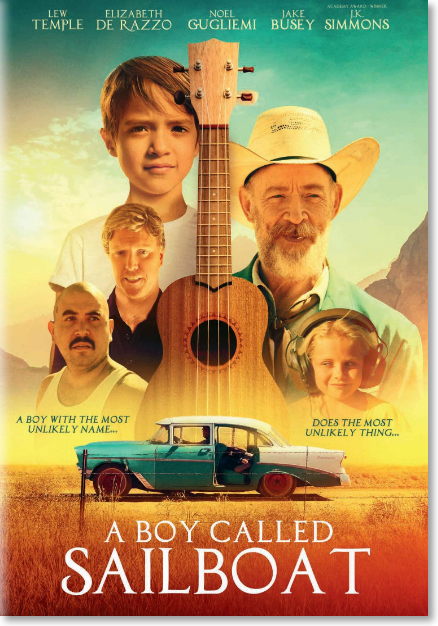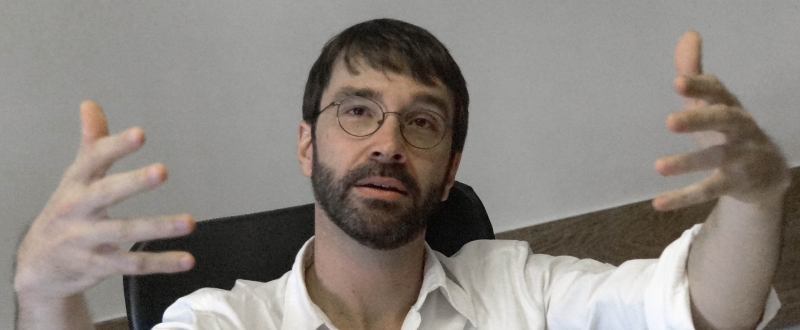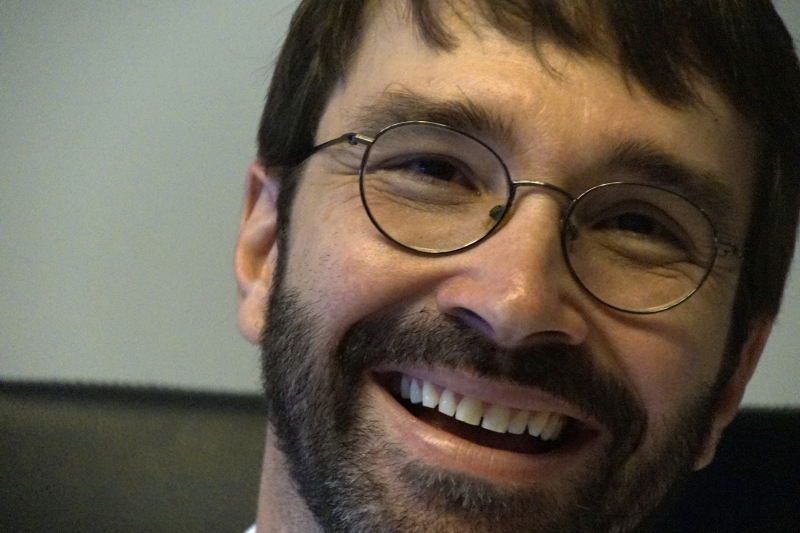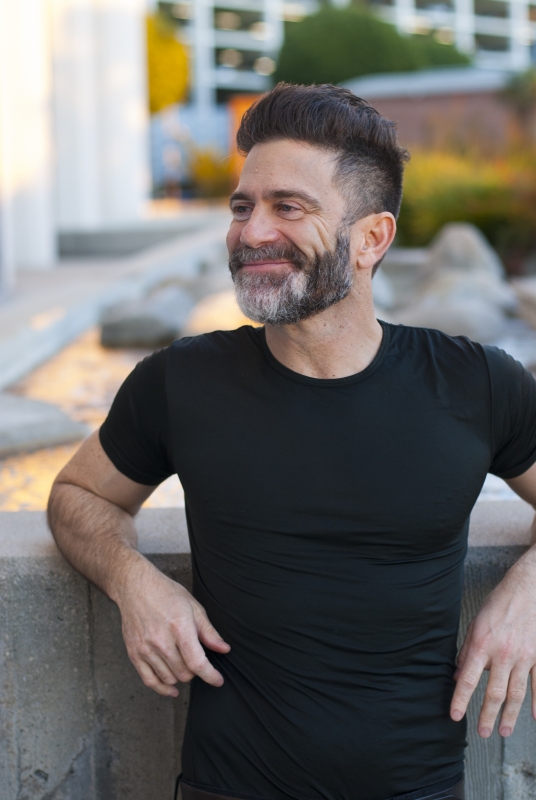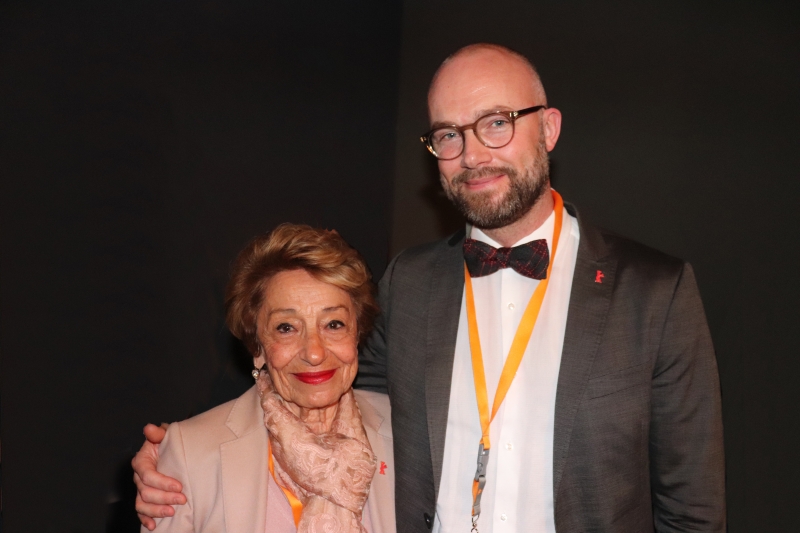|
|
||
|
Pro Tools
FILMFESTIVALS | 24/7 world wide coverageWelcome ! Enjoy the best of both worlds: Film & Festival News, exploring the best of the film festivals community. Launched in 1995, relentlessly connecting films to festivals, documenting and promoting festivals worldwide. Working on an upgrade soon. For collaboration, editorial contributions, or publicity, please send us an email here. User login |
The 60th Berlinale--Retrospektively Speaking
by Richard Traubner The Retrospektive at the Berlinale usually excites all types of film historians, curators, museum personnel, and other interested parties--especially when it's a German subject. This year, a restored version of Fritz Lang's 1927 Metropolis trumped the Retrospektive itself, which was a look-back at significant and sometimes controversial films shown at the film festival since it began in 1951--in far warmer June weather.
Many of these films are quite familiar now: In the Realm of the Senses, The Deer Hunter, or even Powell and Pressburger's The Tales of Hoffmann. One can obtain these from any video store. There was a large crowd for the showing I caught of Clouzot's Le Salaire de la Peur, but it began by being accidentally screened in widescreen format. After that was corrected, the film's exposition seemed endless, and hardly classic, before the actual dynamite truck ride began.
Metropolis has been restored several times, a few years ago with footage found at Moscow's Gosfilmofond archive. But two years ago a longer version was found in a Buenos Aires archive that contained about a half-hour of footage that had not been seen since the film's premiere at the UFA Palast am Zoo in 1927. With the help of the original Gottfried Huppertz orchestral parts, its music cues, and the archival censorship copy of the script, the grainy Argentinian scenes were fitted into what is now touted as the complete Metropolis. This was shown in direct transmission en plein air at the Brandenburg Gate, and on television, the second night of the festival, to a crowd of very cold film buffs.
The saga of Metropolis's journey, after being severely cut and rewritten for a Paramount release in the USA by the writer Channing Pollock, was also the subject of a fascinating exhibit at the Berlin Kinemathek, which showed everything from original costume designs to a still of Lang and his stars playing in a jazz band on the set. The second German release was much shorter, as it was felt the original was too long for 1920s' audiences. Although Lang's film may have been mutilated in the process, it cannot be said to be the easiest film to sit through, even in its present, restored version. And it's worth remembering that the film was not the desired international success Ufa envisioned.
But the wonders of Lang's film as a predecessor of most science-fiction and futuristic films remain luminously vivid, with the spectacular sets by Hunte and Kettelhut, the amazing lighting, camerawork of Freund, and Lang's strirring mise-en-scène. But the plot itself, with its future + present + Christian-humanist themes, does not wear as well as it might, despite wonderful performances from its cast: Gustav Frölich, Alfred Abel, Heinrich George, and the amazing Brigitte Helm. I was enchanted by the very 1927 nightclub scenes found throughout the film, with their fantastic revue sets and costumes, some of which were newly discovered in Argentina.
Lang was of course courted by the Nazi regime early on, despite his Jewish roots. The spectre of Nazi-era subjects, and even their very films, were potently on display at this Berlinale. Jud Süss-Film ohne Gewissen (directed by Oskar Roehler), scrutinised the making of the infamous propaganda film originally directed by Veit Harlan in 1940. This was an uneasy mélange of National-Socialist nostalgie, with glamorous receptions peopled by film-star portrayers, songs of the period, jokes against Hitler, non-heiling by an artsy crowd, nightclub scenes, and reconstructions of the original black-and-white film scenes-which turned out to be more riveting than the other recreated vignettes. (One exception was the documented showing of Jud Süss to SS officers who would later work in the as-yet unfinished Auschwitz.)
Although the unease of the lead actor Ferdinand Marian was depicted, the film seemed flat compared to the more captivatingly diabolical tale of an opportunistic actor, a thinly-veiled Gustav Gründgens, in Mephisto (1981). For Jud Süss, the very popular actor Moritz Bleibtreu was on hand to give a very flashy portrait of propaganda minister (and film tsar) Josef Goebbels.
The French La Rafle, a fictional account (shown in the market section) of the Vélodrôme d'Hiver round-up of Paris Jews in 1942, was not open to the press before its Paris release on March 10th. But another commercial film with NS subject matter was: the Norwegian Svik (Betrayal), a compendium of Nazi clichés that almost seemed a parody.
For actual Nazi horror, one could turn to the real footage of a Nazi project that was the subject of a new Israeli documentary, A Film Unfinished (Yael Hersonski). The Warsaw Ghetto scenes filmed by SS cameramen were frightful, with the very evident death, starvation and rags of the inmates on view just before the mass deportations to Treblinka began in the summer of 1942. Not content to show simple misery and degradation, the filmmakers actually staged scenes of comparatively healthy-looking Jews gorging themselves, drinking, smoking and laughing at tables filled with amounts of food they had not seen for months. The "acting" of the Jewish crowds was forced on them by the helmers, with obviously terrible consequences if they failed to react properly.
This is the worst kind of a horror film, as frightening as any concentration camp footage because we know what lay in store for most of the cast. The Nazi documentary using this footage was never actually made, and only recently uncovered in an archive vault. Further post-Nazi-era documentaries included a film on the postwar prosecutor Fritz Bauer, mysteriously murdered, and a documentary with newly restored footage of some of the Nürnberg war-crimes trials. Ironically, the golden-age Ufa producer Erich Pommer worked on this exposé, shown in postwar Germany but never in the USA.
Another retrospective but modern glimpse of totalitarian days was the superb Czech film Kawasaki's Rose, directed by Jan Hrebejk, dealing in a different, but no less fascinating way to elements of secret-police activity and betrayal as shown in the Das Leben der Anderen. In another depiction of a mass-murderer by a very popular actor, André Dussollier appeared rather unusually as a comparatively gentle, nuanced Stalin in his final days in the French Une exécution ordinaire (writer-director Marc Dugain), opposite a quite frightened female doctor played memorably by Marina Hands.
I missed screenings of three prewar Japanese films by Shimazu Yasujiro in the Forum section, unfortunately, but managed to take in such interesting period projects as the French L'Autre Dumas, a study of the unsettling relationship between Alexandre père and his uncredited co-author, Auguste Macquet. With brilliant playing by an overstuffed, over-the-top Gerard Depardieu and the requisitely nerdy Benoit Poelvoorde, and a witty script, based on a play, the film held one's dramatic as well as decorative interest.
Finally, a moving documentary in the Panorama section about a 1950s' Hollywood icon: Rock Hudson-Dark and Handsome Stranger (Andrew Davies, André Schäfer), which plumbed the saga of a real man's man of an actor who of course turned out to be gay, and, in a celebrity death, helped change attitudes toward the AIDS crisis.
by Richard Traubner http://www.filmfestivals.com/htm/festivals.shtml 07.03.2010 | Berlin's blog Cat. : A Film Unfinished actor Alfred Abel André Dussollier André Schäfer Andrew Davies Argentina Auguste Macquet Benoît Poelvoorde berlin Berlin Brigitte Helm Buenos Aires Channing Pollock Co-author Contact Details Director Documentary film Entertainment Entertainment Erich Pommer Ferdinand Marian Film Film genres Films Films directed by Fritz Lang food Fritz Bauer Gerard Depardieu Gottfried Huppertz Gustav Frölich Gustav Gründgens Heinrich George Hitler http://www.filmfestivals.com/htm/festivals.shtml Human Interest Human Interest HUNTER Jan Hřebejk Josef Goebbels Jud Suss Jud Süss-Film M Marc Dugain Marina Hands Memory of the World Register Metropolis Minister Moritz Bleibtreu Moscow Oskar Roehler Paris Person Career Producer prosecutor Richard Traubner Social Issues Social Issues Stalin Tsar Ufa Warsaw writer Yael Hersonski FILM
|
LinksThe Bulletin Board > The Bulletin Board Blog Following News Interview with EFM (Berlin) Director
Interview with IFTA Chairman (AFM)
Interview with Cannes Marche du Film Director
Filmfestivals.com dailies live coverage from > Live from India
Useful links for the indies: > Big files transfer
+ SUBSCRIBE to the weekly Newsletter Deals+ Special offers and discounts from filmfestivals.com Selected fun offers
> Bonus Casino
User imagesAbout Berlin Chatelin Bruno Chatelin Bruno |


















